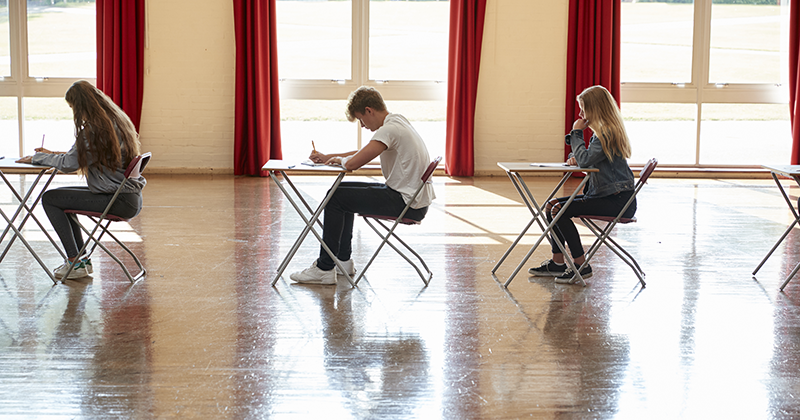The next government faces a “painful set of choices” on school funding, the Institute for Fiscal Studies has warned, with schools facing stagnating cash, real-terms cuts to teacher pay and a soaring SEND bill.
Politicians looking to falling pupil numbers as a way to make savings would face having to cut staff numbers and close schools, the think tank also warned.
Pupil numbers are due to fall by around 10 per cent by 2032, and falling primary rolls are already decisions to close and merge schools, particularly in London.
The crisis has prompted calls for school funding overall to be kept at current levels, allowing falling rolls to push up per-pupil funding.
Neither of the main parties has said what they will do to school funding after the election.
Report author Luke Sibieta, a research fellow at the IfS, said an incoming government “might be tempted to cut school spending in response to falling pupil numbers”.
But realising such savings “could be easier said than done as it would likely require workforce reductions and, perhaps, school closures”.
“This is probably why policymakers have shied away from making cuts to total school spending in the past.”
He added there was a “growing list of pressures on school spending, which may become harder to address over time, such as the spiralling cost of special educational needs provision, real-terms cuts to teacher pay and a growing backlog of repairs to school buildings”.
School costs rise above inflation
Based on wider inflation across the economy, school funding is due to return to 2010-levels in real-terms next year.
However, schools’ costs are rising more sharply, potentially leaving their spending power 4 per cent lower in real terms than 14 years ago.
A lack of growth in spending per pupil over 14 years is “without precedent in recent history”, the IfS warned.
“The long-run average growth in spending per pupil is about 2 per cent per year in real terms. Under Labour governments from 1997 to 2010, spending per pupil rose by an average of 5 to 6 per cent per year in real terms.”
The funding situation is made worse by rising demand for special educational needs and disabilities support.
The number of pupils with the highest levels of assessed special educational needs has increased by over 60 per cent since 2015.
This has driven a £3.5 billion increase in the high-needs budget, which has “used up” nearly half of the £7.6 billion increase in school spending since 2015.
Spending on school buildings is also 25 per cent lower than in the mid-2000s and about 40 per cent below what the government thinks is needed to bring all schools up to a good state of repair.
At the same time, average teacher pay is 6 per cent lower in real-terms than in 2010, exacerbating recruitment and retention woes.
‘Between a rock and a hard place’
Sibieta said: “Looking to the coming parliament, policymakers are caught between a rock and a hard place.”
He said based on current plans “many other areas of public service spending appear to be facing cuts under either a Conservative or a Labour government”.
The report found that “in principle” a fall in pupil numbers “should reduce spending needs and pressures”.
Freezing per-pupil funding in real terms “could generate savings of over £3 billion per year by 2028–29”.
However, there are “a number of caveats to this”.
Schools’ costs are “unlikely to fall in proportion to pupil numbers, particularly in the short run”.
They have “many fixed costs in terms of having a teacher in front of a class and heating a building”.
“There are savings to be had, but realising those savings would generally require cuts in staff numbers or closing some schools if they are no longer financially viable, which can both be hard to achieve in practice.”
The IfS also warned there was “uncertainty” around pupil number forecasts “when looking to the medium term”, and warned falls will “not be even across the country”.











